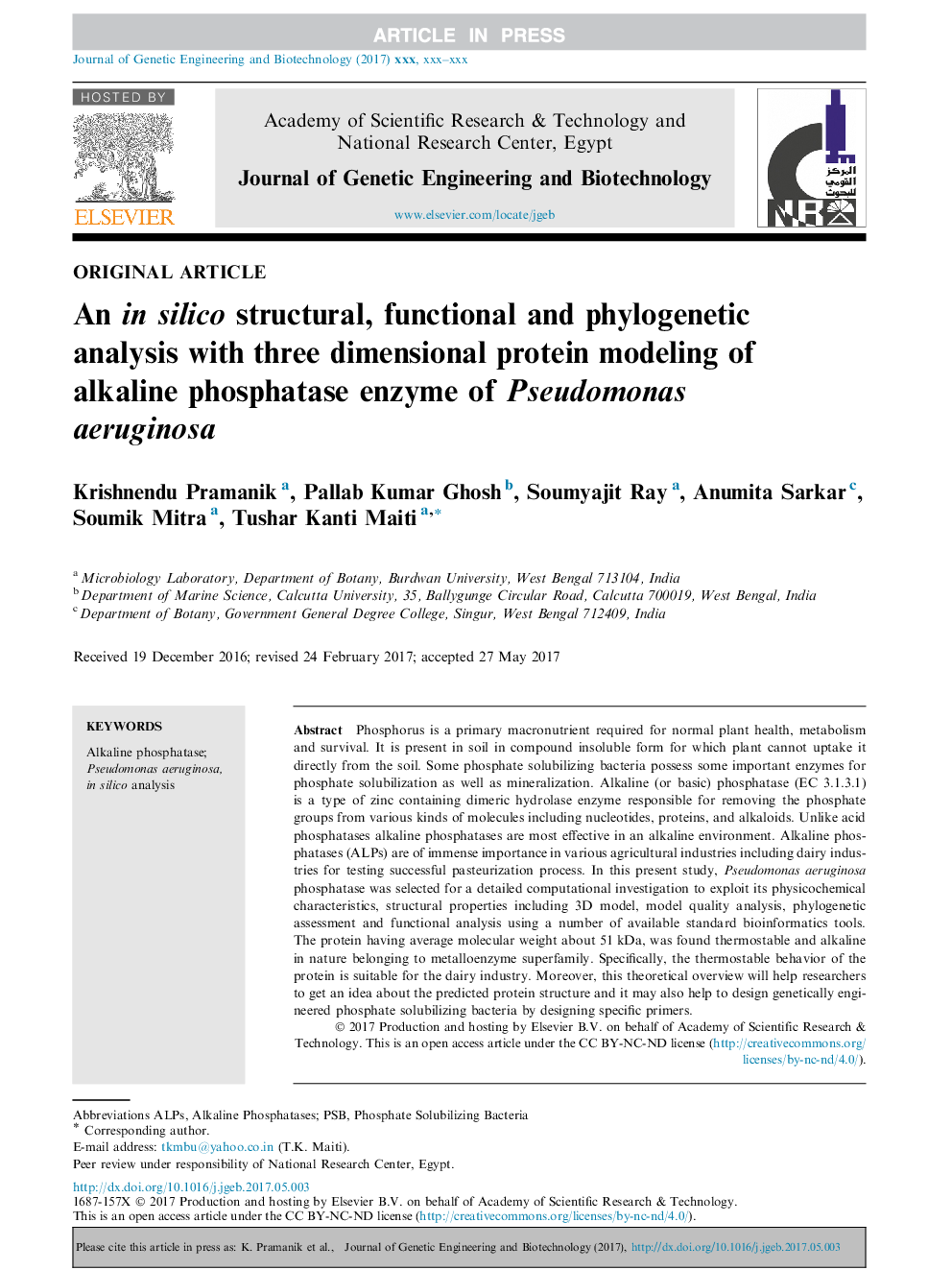| Article ID | Journal | Published Year | Pages | File Type |
|---|---|---|---|---|
| 8416500 | Journal of Genetic Engineering and Biotechnology | 2017 | 11 Pages |
Abstract
Phosphorus is a primary macronutrient required for normal plant health, metabolism and survival. It is present in soil in compound insoluble form for which plant cannot uptake it directly from the soil. Some phosphate solubilizing bacteria possess some important enzymes for phosphate solubilization as well as mineralization. Alkaline (or basic) phosphatase (EC 3.1.3.1) is a type of zinc containing dimeric hydrolase enzyme responsible for removing the phosphate groups from various kinds of molecules including nucleotides, proteins, and alkaloids. Unlike acid phosphatases alkaline phosphatases are most effective in an alkaline environment. Alkaline phosphatases (ALPs) are of immense importance in various agricultural industries including dairy industries for testing successful pasteurization process. In this present study, Pseudomonas aeruginosa phosphatase was selected for a detailed computational investigation to exploit its physicochemical characteristics, structural properties including 3D model, model quality analysis, phylogenetic assessment and functional analysis using a number of available standard bioinformatics tools. The protein having average molecular weight about 51Â kDa, was found thermostable and alkaline in nature belonging to metalloenzyme superfamily. Specifically, the thermostable behavior of the protein is suitable for the dairy industry. Moreover, this theoretical overview will help researchers to get an idea about the predicted protein structure and it may also help to design genetically engineered phosphate solubilizing bacteria by designing specific primers.
Related Topics
Life Sciences
Biochemistry, Genetics and Molecular Biology
Biotechnology
Authors
Krishnendu Pramanik, Pallab Kumar Ghosh, Soumyajit Ray, Anumita Sarkar, Soumik Mitra, Tushar Kanti Maiti,
